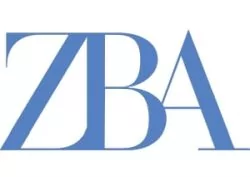Introduction
The Delhi High Court in a recent judgement in the case of Dredging Corporation of India v. Mercator Limited (decided on 10 October 2018) firmly disapproved of annulment proceedings mounted in India against an LMAA award. The ruling clarified that the expressions 'seat of arbitration' and 'venue of arbitration' are distinct legal concepts and not inter-changeable. The Court ruled that the jurisdiction to review or annul a foreign award could only be exercised by the curial court, i.e. the English courts.
Facts
Disputes arose out of a charter party governed by English law. The charter party provided for London arbitration, governed by the English Arbitration Act, 1996 and conducted in accordance with the London Maritime Arbitrators Association ("LMAA") Rules.
Arbitration proceedings commenced and culminated in an arbitral award ("Award") being passed in favour of the Respondent in London.
The Petitioner commenced annulment proceedings against the Award in the Delhi High Court under Section 34 of the Arbitration and Conciliation Act, 1996 ("Indian Act"). The Respondent challenged the jurisdiction of the Delhi High Court to entertain the annulment petition on the ground that the "seat" of the arbitration was London and consequently Section 34 of the Indian Act (which empower Indian courts to review domestic awards) was wholly inapplicable in the facts of the case.
During the course of hearing before the Delhi High Court, it emerged that:
a) The Respondent had written to request that the "seat" of arbitration be changed to New Delhi from London.
b) The Petitioner, while agreeing to the Respondent's request, informed the Respondent that Board approval was necessary to effectuate the change of "seat" to New Delhi. The Petitioner then informed the Respondent that the approval of its Board had been obtained and the "seat" of arbitration had been changed from London to New Delhi, as mutually agreed by the parties.
c) The Petitioner in a subsequent letter informed the Respondent that they had mutually agreed to conduct the arbitration in India to avoid unnecessary expenditure.
d) The Respondent responded by denying the existence of any agreement changing the "seat" of arbitration to New Delhi and disputed the change of seat from London to Delhi.
e) The Petitioner in response clarified that the "venue" of arbitration could be New Delhi, but the "seat" of arbitration should remain London, i.e., the arbitration would continue to be governed by the English Arbitration Act, 1996 ("English Act") and be conducted in accordance with the LMAA Rules.
f) The Respondent wrote to the Petitioner, agreeing to change the "venue" to New Delhi, while confirming that the English Act would govern the arbitration, thus retaining London as the "seat" of arbitration.
Findings and Analysis of the Court
The Delhi High Court, relying on the Supreme Court of India's judgement in Union of India v. Hardy Exploration and Production (India) Inc. (decided on 25 September 2018), dismissed the petition for annulment of the Award, filed by the Petitioner under Section 34 of the Indian Act on the ground that it did not have jurisdiction to do so as the "seat" of arbitration was London and not India- resulting in Section 34 being inapplicable to the matters in controversy.
The Court, after taking into consideration the entire factual matrix, the conduct of the Petitioner (particularly its application to the English High Court to correct the Award), and other relevant factors found that it was evident that the parties were aware of the distinction between 'seat' and 'venue' of arbitration. The Court upon concluding that the seat of the arbitration was London, found the Petitioner's attempt to domesticate a foreign award as legally untenable.
Conclusion
The judgement is an important and positive contribution to Indian lex arbitri as it makes the arbitration landscape more easily understandable. The message is clear- frivolous or ingenious challenges to delay or defeat foreign awards will not be encouraged by the Indian courts.
Originally published August 19, 2020.
The above is a generic analysis and should not be regarded as a substitute for specific advice based on the facts of a client's objectives and specific commercial agreements reached. Please do reach out to us at mail@zba.co.in for any queries.

